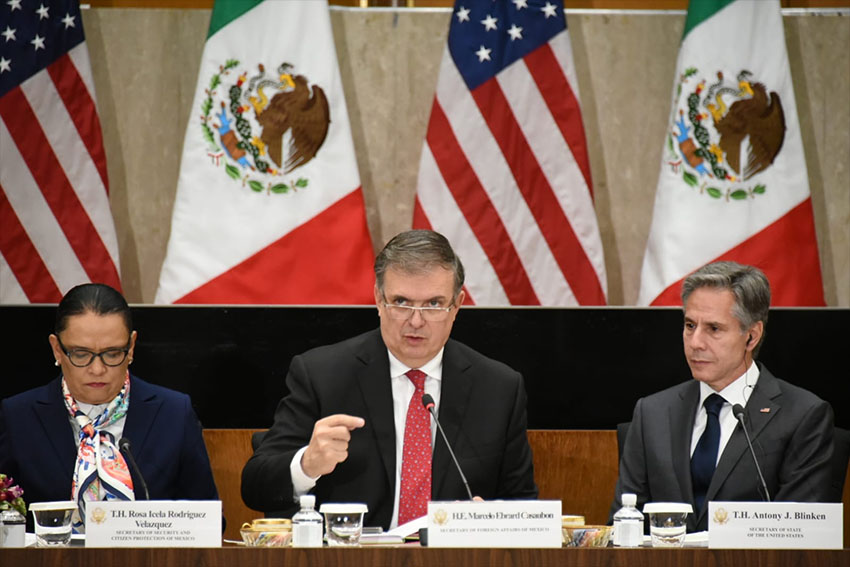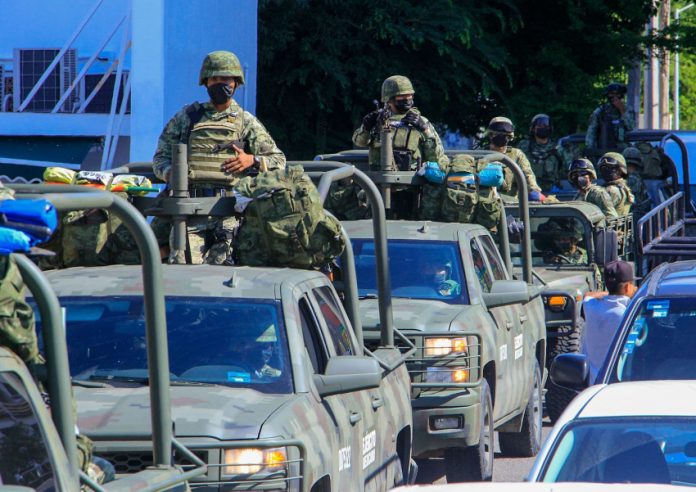The Mexican military is incapable of planning and executing special forces operations with the United States army, according to a leaked document.
Neither the Mexican army nor the navy has that capacity, the Ministry of National Defense (Sedena), the Ministry of the Navy (Semar) and the United States Northern Command said in an analysis prepared in January.
The report was stolen from Sedena’s IT system by the Guacamaya hacking group and obtained and reviewed by the media outlet Latinus.
The Mexican armed forces lack the “codified roles and responsibilities” needed to carry out joint tasks with the U.S. military, the report said.
The document also said that there is limited capacity for Mexican and U.S. special forces to communicate with each other in a secure way during operations and training exercises.
The Northern Command, one of 11 unified combatant commands of the United States military, is concerned about the limitations of the Mexican army and navy and believes that their members need immediate training to raise their standards to U.S. levels, the report indicated.
The document paints a different picture to that presented by Mexican and U.S. officials at high-level security talks in Washington last week. Officials including Mexico’s Foreign Affairs Minister Marcelo Ebrard and U.S. Secretary of State Antony Blinken sang the praises of the bilateral security collaboration since a new security pact formally called the Bicentennial Framework took effect late last year, although they did acknowledge that challenges remain and more needs to be done to enhance the partnership.
The leaked document outlines solutions and proposals so that “level 1” units of the Mexican army and navy have the capacity to successfully plan and execute joint special forces missions by 2029, Latinus said.

Among the capacities Mexican special forces are slated to develop is the ability to “neutralize weapons of mass destruction.”
Another leaked document among the six terabytes of data stolen from Sedena servers indicates that the United States wants Mexico’s military to strengthen its cybersecurity in order to better detect and respond to such threats.
“By the year 2028, Sedena and Semar will have advanced capacities … to monitor, detect, respond to and recover from cyber-threats,” states a document jointly prepared by the Mexican and U.S. military.
If the Mexican military had such capacities now, the massive data theft committed by “hacktivist” group Guacamaya could have perhaps been prevented.
President López Obrador has downplayed the seriousness of the security breach, asserting that he didn’t expect any negative consequences from it.
However, the hacking incident itself is a major embarrassment for the government, and security analyst Alejandro Hope warned in an opinion article that “it’s possible that there is highly sensitive information among the extracted documents – national security information that isn’t and shouldn’t be in the public domain.”
The apparent planning and operational deficiencies of the Mexican military would appear to fit into that category.
With reports from Latinus
